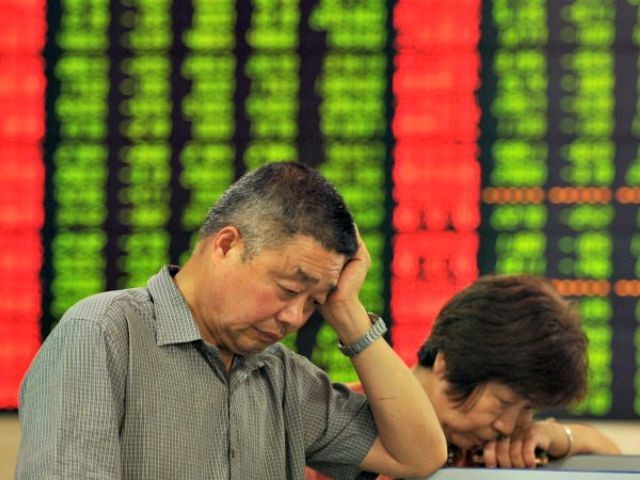Lombard Street Research has been very bearish on the economic prospects of China as well as for Europe and, especially, the United States.
Although they are not surprised at the intensity of the current China crisis, Lombard does not see China causing another “2008 moment” that leads to a global financial crisis. They suggest that the current intensity of selling is historically a favorable point at which to buy stock.
Although many investors are worried that China, whose economy is now comparable to the U.S. in size, could cause a worldwide financial crisis, Lombard argues those fears look misplaced because “China is a large current account surplus country when commodities are excluded.”
Lombard believes the 2008 financial crisis was the result of a global financial system that was levered up on U.S. subprime securities. A huge portion of the funding for the bubble came from foreign exporting nations, like China, Japan, Germany, and OPEC, which recycled their U.S. dollar earnings back into U.S. dollar securities. When the bubble popped, the foreigners tried to pull their cash out in mass, precipitating a crash.
But Lombard points out that China’s credit bubble has been fueled by domestic savings, since the nation restricts their citizens from making investments outside of China. This is most evident in the Chinese stock market, where 85 percent of trading comes from Chinese households, versus 11 percent in Europe and a similar amount in the U.S.
Until two years ago, the Chinese stock market was not critical to financing the Chinese economy, since almost all corporate financing of Chinese state-owned and private companies came through the state-owned banks. But President Xi Jinping’s late 2013 Silk Road reforms aimed to “privatize” the risks of financing state-owned-enterprises off of the balance sheets of state-owned-banks and onto the balance sheet of the public. Over the last two years, the number of Chinese stock brokerage accounts for household investors grew from 20 million to about 100 million as the markets boomed.
Now that the Chinese stock market bubble has popped, the financial spillover effects should not mean a global financial crisis, since most of the losses will be in China.
The biggest positive impact from China’s crisis is the end of the “commodity super-cycle,” which means lower cost for the big consuming nations, like the U.S., EU, and China. The Bloomberg commodity index peaked in April 2011 and has been consistently trending down ever since.
Lombard perceives the former “China Bulls” have now swung into the panicked capitulation stage, with the index closing down another -2.2 percent today at 85. Over the last four years, the index of all commodities prices has suffered a -51 percent decline.
In the short term, Lombard expects capitulation by the China Bulls as having metastasized across the planet as the “bears” are now “following through” by liquidating all risk assets, on “the (false) grounds that China’s problems will bring the world to a halt.”
To get a sense of how severe the selling has been, the relative strength index that measures the intensity of U.S. stock buying versus selling was at 23 on Friday, the worst level since 2011. With the Dow Jones Industrial Index opening down -1089 points Monday morning, the relative strength index was under 10, for one of the worst readings in history This would seem to be an indicator that either the market is oversold or civilization is about to end.
It is Lombard’s view that due to capitulation, “Radically cheaper Chinese goods will add to the consumer-income boost in the West and elsewhere that is also augmented by the latest slide in oil and metal prices.”
Lombard suggests that the “current risk-off phase should provide investors with an attractive buying opportunity. Buying stocks under such dire oversold conditions has historically rewarded investors with above average returns over the next 1-to-6 months.

COMMENTS
Please let us know if you're having issues with commenting.